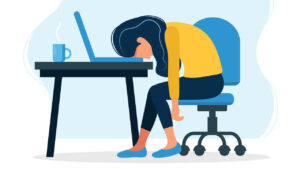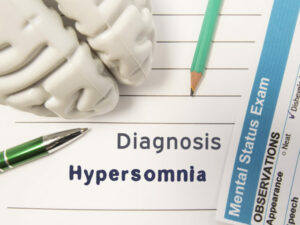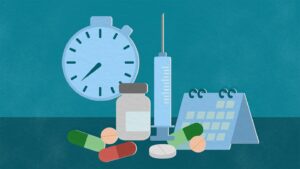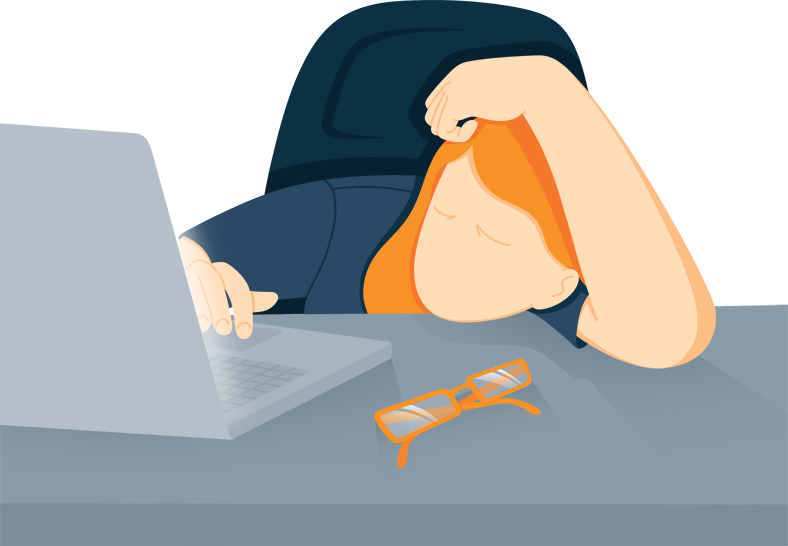Hypersomnia depression is a serious mental health condition that can cause extreme fatigue and sleepiness. It can make it difficult for people to go about their daily lives, and can even lead to suicidal thoughts. In this blog post, we will discuss hypersomnia depression in detail, including its causes, symptoms, and treatment options. If you or someone you know is suffering from hypersomnia depression, please seek help right away.
Contents
What Is Hypersomnia Depression?
 Hypersomnia depression consists of two separate but related conditions: hypersomnia and depression. Hypersomnia is a sleep disorder characterized by excessive daytime sleepiness. People with hypersomnia may feel the need to nap several times during the day, and they may sleep for long periods of time at night. Depression, on the other hand, is a mood disorder characterized by persistent feelings of sadness, anxiety, and worthlessness. People with depression may also experience fatigue, insomnia, and difficulty concentrating. When these two conditions occur together, they can have a profound effect on a person’s ability to function in day-to-day life.
Hypersomnia depression consists of two separate but related conditions: hypersomnia and depression. Hypersomnia is a sleep disorder characterized by excessive daytime sleepiness. People with hypersomnia may feel the need to nap several times during the day, and they may sleep for long periods of time at night. Depression, on the other hand, is a mood disorder characterized by persistent feelings of sadness, anxiety, and worthlessness. People with depression may also experience fatigue, insomnia, and difficulty concentrating. When these two conditions occur together, they can have a profound effect on a person’s ability to function in day-to-day life.
The comorbidity of these two can be an alarmingly vicious cycle. For example, someone with hypersomnia may be too tired to get out of bed and may therefore miss work or school. This can lead to feelings of worthlessness and anxiety, which can in turn worsen hypersomnia. It is important to seek help if you are experiencing any of these symptoms.
It is also important to note that hypersomnia depression is different from seasonal affective disorder (SAD), which is a type of depression that occurs during the winter months. While both conditions can cause fatigue and sleepiness, SAD is not associated with hypersomnia.
How To Recognize The Signs?
 The rather interesting and simultaneously concerning fact is that the signs of hypersomnia depression are not always obvious. This is because people with hypersomnia may not necessarily feel sleepy during the day. Rather, they may just feel tired all the time. As a result, it can be easy to miss the signs of hypersomnia depression.
The rather interesting and simultaneously concerning fact is that the signs of hypersomnia depression are not always obvious. This is because people with hypersomnia may not necessarily feel sleepy during the day. Rather, they may just feel tired all the time. As a result, it can be easy to miss the signs of hypersomnia depression.
Moreover, they can be too similar or related to other disorders such as insomnia or anxiety. It is essential to be aware of the potential warning signs and to consult a doctor if you are experiencing any of them.
However, there are some key symptoms to look out for, including:
- Feeling exhausted during the day
- Sleeping for long periods of time (more than nine hours)
- Napping during the day
- Feeling groggy or disoriented after waking up
- Excessive sleepiness during the day
- Difficulty concentrating
- Irritability
- Anxiety
- Suicidal thoughts
If you or someone you know is experiencing these symptoms, it is important to seek help from a mental health professional. Hypersomnia depression is a serious condition that can have a profound effect on a person’s life. Left untreated, it can lead to serious complications.
What Are The Causes?
The causes of both hypersomnia and depression are not fully understood. However, there are some risk factors that have been identified. For example, hypersomnia has been linked to sleep disorders such as narcolepsy and sleep apnea. Depression, on the other hand, has been linked to a variety of factors, including genetic predisposition, stressful life events, and certain medical conditions. When these two conditions occur together, it is likely that they are caused by a combination of factors.
Does One Disorder Lead To The Other?
 When talking about two psychological disorders in conjunction, it is common to wonder which one comes first. In the case of hypersomnia depression, it is often difficult to determine which condition precedes the other.
When talking about two psychological disorders in conjunction, it is common to wonder which one comes first. In the case of hypersomnia depression, it is often difficult to determine which condition precedes the other.
It is believed that in some cases, hypersomnia may lead to depression. This is because fatigue and sleepiness can make it difficult for people to participate in activities they enjoy or to socialize with others. Moreover, hypersomnia can interfere with work or school performance, which can lead to feelings of worthlessness and anxiety.
In other cases, it is believed that depression may lead to hypersomnia. This is because people who are depressed may have difficulty sleeping at night. As a result, they may sleep for long periods during the day in an attempt to make up for the lost sleep. Additionally, depression can cause fatigue, which can worsen hypersomnia.
It is also worth noting that there are other potential causes of hypersomnia depression. For example, certain medications, medical conditions, and substances can cause excessive daytime sleepiness. These include:
- Certain antidepressants
- Stimulants
- Alcohol
- Caffeine
- Illegal drugs
- Medical conditions such as narcolepsy, sleep apnea, and restless legs syndrome
It is also worth noting that hypersomnia depression is more common in women than men. This may be due to hormonal changes during menstruation, pregnancy, and menopause. Additionally, women are more likely to experience depression than men.
How Do They Impact Life?
Depression or sleep problems by themselves are already difficult to deal with. When the two conditions occur together, they can have a profound effect on a person’s life.
Hypersomnia depression can make it difficult for people to participate in activities they enjoy or to socialize with others. Moreover, hypersomnia can interfere with work or school performance, which can lead to feelings of worthlessness and anxiety. Additionally, depression can cause fatigue, which can worsen hypersomnia. As a result, people with hypersomnia depression may find it difficult to function in their everyday lives.
In extremities, hypersomnia depression can lead to serious complications. For example, people with hypersomnia depression may be at risk for developing other psychiatric disorders such as anxiety, schizophrenia, or substance abuse. Additionally, hypersomnia depression can increase the risk of accidents and injuries. Moreover, people with hypersomnia depression may be more likely to attempt or succeed in suicide.
If you or someone you know is struggling with hypersomnia depression, it is important to seek help from a mental health professional. With proper treatment, it is possible to manage the symptoms and lead a healthy life.
How Are They Diagnosed?

If you think you may be suffering from hypersomnia depression, it is important to see a doctor or mental health professional right away. They will ask about your symptoms and medical history. They may also order some tests, such as a sleep study, to rule out other conditions.
Other types of physical exams or tests may also be done to rule out other conditions that could be causing your symptoms. For example, your doctor may order a blood test to check for anemia or thyroid problems. Once hypersomnia depression is diagnosed, they can develop a treatment plan that is right for them.
How To Manage These Conditions?
 The good news is that treatment for both these conditions is available and effective. For hypersomnia, treatment may include:
The good news is that treatment for both these conditions is available and effective. For hypersomnia, treatment may include:
- Medications such as modafinil or armodafinil: These medications can help increase alertness during the day.
- Stimulants: Stimulants such as caffeine can help to improve wakefulness during the day.
- Therapy: Cognitive behavioral therapy can help to change the thinking patterns that may be contributing to hypersomnia.
For depression, treatment may include:
- Antidepressants: These medications can help to improve mood and energy levels.
- Psychotherapy: This type of therapy can help to address the thoughts and behaviors that may be contributing to depression.
- Support groups: Connecting with others who are dealing with depression can provide support and understanding.
- Electroconvulsive therapy: This treatment may be an option for people with severe depression who have not responded to other treatments.
In some cases, a combination of these treatments may be recommended.
It is also important to make some lifestyle changes to help manage these conditions. For example, people with hypersomnia and depression should:
- Avoid alcohol and caffeine: These substances can worsen sleep problems and interfere with antidepressants.
- Get regular exercise: Exercise can help to improve mood and energy levels. It also helps to promote better sleep.
- Stick to a regular sleep schedule: This can help to regulate the body’s natural sleep-wake cycle.
- Eat a healthy diet: What you eat is important for both your physical and mental health. Eating a healthy diet can help to improve mood and energy levels.
- Manage stress: Stress can worsen sleep problems and make depression symptoms worse. Finding ways to manage stress can help to improve your overall well-being.
Hypersomnia depression is a dangerous and potentially deadly condition. But with proper treatment and support, it is possible to manage the symptoms and live a healthy life.
If you or someone you know is struggling with hypersomnia depression, don’t hesitate to reach out for help. There are many resources available to you. Remember, you are not alone.
Conclusion
Conclusively, we now know that hypersomnia and depression are two different but often comorbid conditions. Hypersomnia by itself can be debilitating, but when coupled with depression, the risks increase exponentially. If you or someone you know is struggling with hypersomnia depression, it is important to seek help from a mental health professional. With proper treatment, it is possible to manage the symptoms and live a healthy life.
If you or someone you know is looking for psychological help, Therapy Mantra is here for you. We are the leading providers of online therapy and counseling. Our team of highly trained and experienced therapists can provide assistance at the most affordable rates. Contact us today to learn more about our services. You may also visit our website to book an online therapy session or download our free Android or iOS app for more information.


